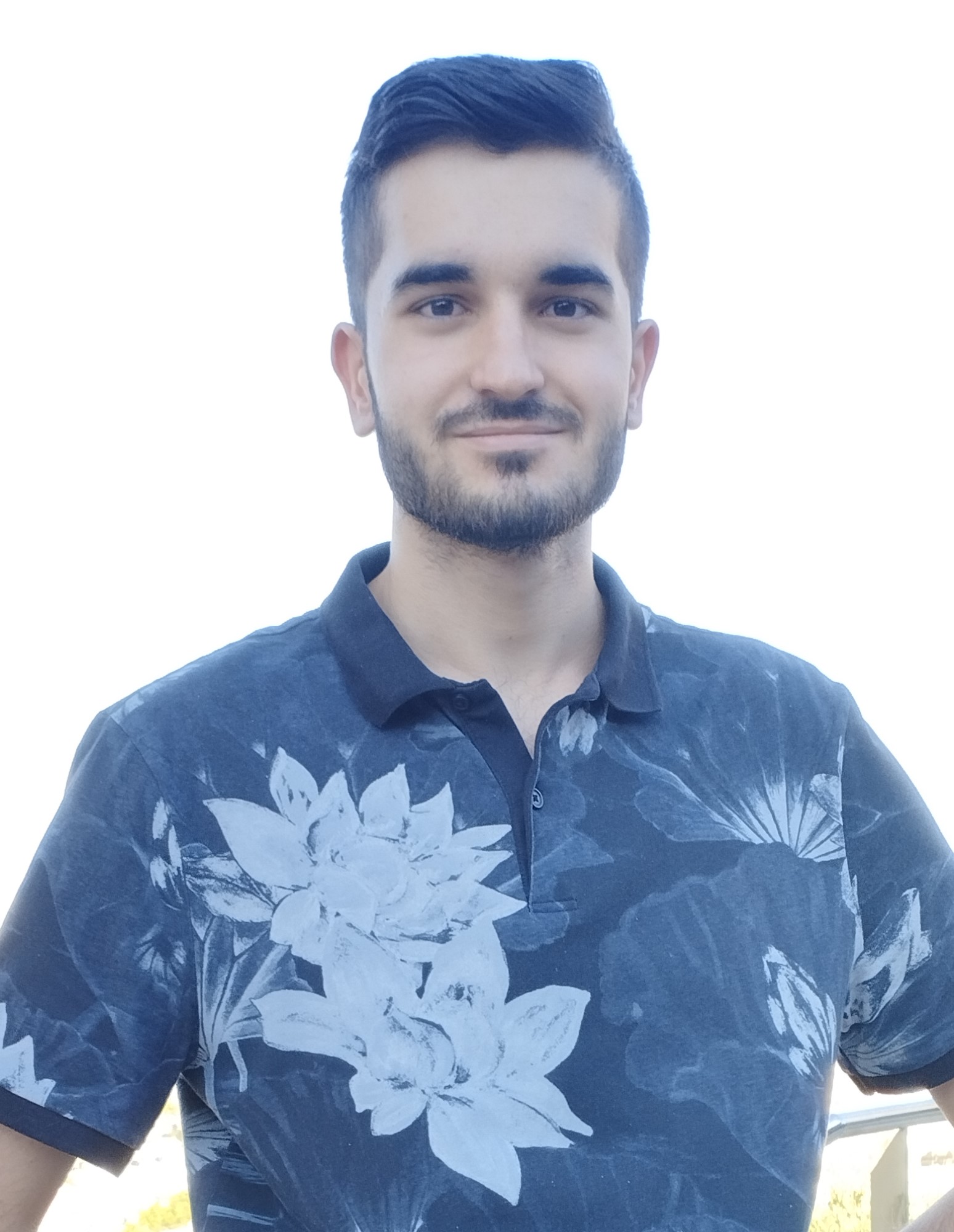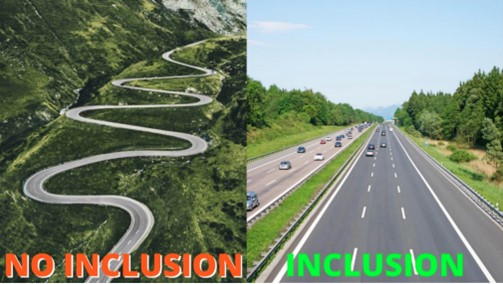You are here :
- EUTOPIA website
- Home
- ENGAGEMENT
- INCLUSION & DIVERSITY
Student Perspectives: Dídac (UPF)

What does inclusion mean to you?
I and the other students in the UPF team discussed what inclusion means for us, and we agreed on the following definition.
Inclusion is an approach, attitude or action which aims to make possible for groups or individuals in conditions of exclusion, segregation or marginalisation to have the same opportunities and possibilities to participate, be, live and coexist in society.
To explain our definition of inclusion we have chosen two types of roads with different shapes that represent two society models.
The first one, on the left side (below), represents a society without inclusion. You can see a damaged curved road. This one has less accessibility, it’s more dangerous and therefore more difficult to drive. An exclusive road which limits your possibilities.
On the right side, we can see a straight road with more room and less complications. This represents our idea of inclusion, a way opened to everybody. Because it’s easier, safer and flatter. In conclusion it’s available to anyone who wants to go through.
With this comparison we try to explain that, for us, inclusion is to have all the facilities for everyone to do whatever they want to do.

Are there any inclusive practices at your university that you would like to highlight?
At UPF, there are lots of tools and provisions to help you deal with things like dyslexia and dyscalculia – and the professors do a lot to help you. I’ve seen this very often, and am really happy to have this kind of support.
It’s good that there are a lot of extra-curricular activities at university, because you need these to help you figure out your own purpose in life. Students can also benefit from career-development organisations and opportunities outside the university – it would be good if the university could make these external things more accessible for students.
What new or improved practices would you like to see?
We saw that the University of Gothenburg runs mandatory workshops for academics about inclusion in teaching and education. This would be a great thing to implement at UPF and would make a real difference in our university. It is not easy to influence students on these issues, but if you see a very good teacher promoting good practices about gender equality, maybe you will follow them.
We would also like to see the university give more economic support to people who cannot go to university because of financial problems. We know this is difficult because of the other costs the university has, but it’s always possible to provide some kind of support.


